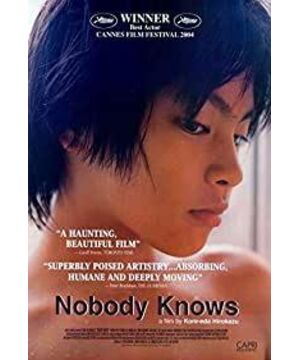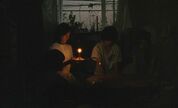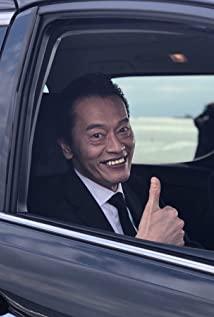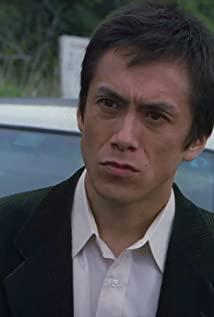is quite a touching story.
After watching it, I was most impressed by the two shots: the
four children used the cup noodle, filled it with soil, buried the seeds, and when the plants grew, Mao took care of them carefully and watered them every day. In the end, they didn't even have water, and they had to go to the park tap to take a shower. However, these few pots of small potted plants, they are all very loving. ——I think human beings have the instinct to love the weak, just like mothers have the instinct to love their children. Although their mothers leave them, they still do their best to care for their "little grass that they can take care of".
When Xiaoxue was in a coma, Ming went to the supermarket and bought a lot of chocolates for her sister, a total of more than 1,000 yuan. In the past, he only bought one box at a time, waiting at the door of the convenience store on winter nights until the chocolate price dropped, and Xiaoxue always cherished it and ate it slowly. They were waiting for their mother at the train station before Christmas, when my sister had just finished her last chocolate. My sister wanted to see the plane, so Ming and the girl, together with Xiaoxue, set off on the road. They packed her sister into a suitcase, and Jingzi said that Xiaoxue had grown up and couldn't hold it. On the balcony, Kyoko said to Shigeru, "Are we going to say goodbye?" ——Each of us has limited ability, but the dedication to what we love is unlimited. In the end, if he only had that much money, he would use all the money to buy the chocolate that Xiaoxue likes, and use all the money to buy train tickets to see the plane, just because he loves his sister.
Of course. This is not what this true story is.
After reading the story of Hirokazu Koreeda, is everyone thinking, how are these children doing now? How was this discovered?
So you can learn the original version of the story.
The original version was a story of "human nature is inherently evil", however, it was Hirokazu Koreeda who changed it into a tearjerking story of "human nature is inherently good". It's not that we can't see the truth because of weakness, but we hope that each of us can reflect.
Ming was caught in the room by the manager when he was stuffed into his bag by other children at the convenience store one day.
Later, he made friends. Everyone has the need to make friends. Family, friendship, and love are everyone's emotional needs. Ming is the only child in this family who can go out. So the friendship he gained was unfortunately a bad boy who played games and stole things. Seeing this, I felt very uncomfortable and worried for Ming.
In fact, Mao also encountered the same need for friendship later, and he secretly ran to the street to play with other children in a remote control car. Ming found him and kicked his car to pieces.
Each of us is free, can go to school, can choose our friends, and never understand the true value of friendship.
Friendship is not that one side always needs the other, but that both sides need and love each other.
The truth of the story is infuriating. Or in fact, it can be understood that children who have not received love often have hatred in their hearts. They should love people and things who are weaker than themselves. On the contrary, they like to bully people who are weaker than themselves, which leads to tragedy.
However, the film was adapted to be so full of love and innocence. Just injected a positive energy into the story. No matter how miserable we are or how bad we are, there must be people in this world who are worse, weaker and weaker than ourselves. What we can do is not to bully them, but to love them.
No matter what, love is always the best gift.
View more about Nobody Knows reviews










